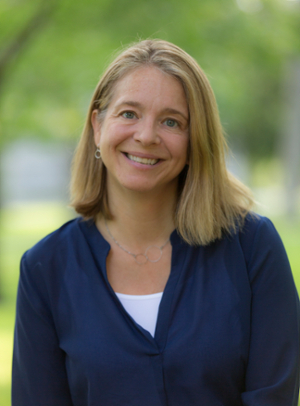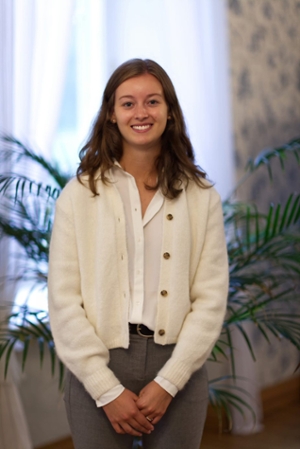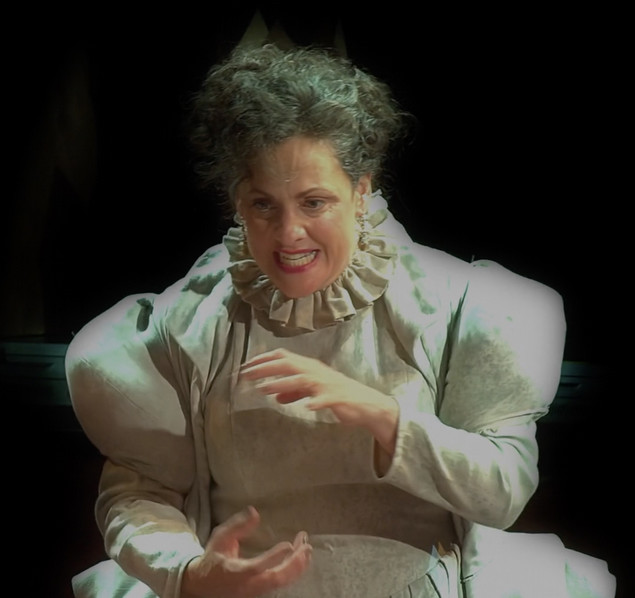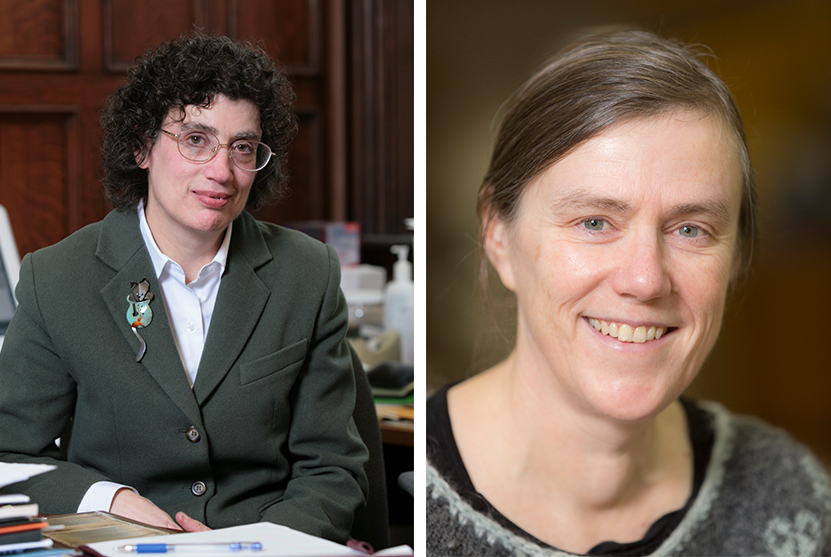Laura Henry and Laura Howells '20 on “Controlling Russia’s Information Space”
By Tom PorterWhat are the implications of Russia’s crackdown on internet freedom within its borders? How does Moscow’s digital authoritarianism compare with Beijing’s control of its information space? These are some of the issues examined by Professor of Government Laura Henry and Fulbright scholar Laura Howells ’20 in a recent article.

The article—Digital Authoritarianism at War: Controlling Russia’s Information Space—was published last week on the website of the NYU Jordan Center for Advanced Study of Russia. Henry and Howells, who is currently studying in Estonia on a Fulbright scholarship, argue that Russia’s form of digital authoritarianism is markedly different from that of China.
“There are important differences between China’s ‘Great Firewall’ and Russia’s efforts to control the Internet, even today. As our research demonstrates, Russia’s Internet governance is largely reactive—a belatedly introduced control system grafted onto a once largely free digital sphere.”
In China, however, “Internet governance co-evolved with the creation of the Internet... From the earliest days of online communication, China developed home-grown technology and social media giants to rival those in Silicon Valley.” Chinese consumers have access to a wealth of domestic online resources, including nine dating apps, an equivalent of TikTok called Douyin, a domestic search engine web (Baidu), and a Twitter equivalent called Weibo.
Despite these differences, Moscow is rapidly tightening control of its digital information space following the recent invasion of Ukraine. “In early March, the government introduced a new law that carries a prison sentence of up to 15 years for individuals who ‘knowingly’ spread ‘false information’ about all Russian state bodies operating abroad.”

Furthermore, a Russian court has also banned Facebook and Instagram, while access to Twitter has been severely restricted, say Henry and Howells, who coauthored a peer-reviewed academic article on the subject in December 2021.
Such efforts by the Russian authorities to stem the free flow of information are being unwittingly assisted by outside actors, we are told. International sanctions, combined with “corporate self-sanctioning” by technology companies like Apple, Netflix, Spotify, and Microsoft, run the risk of “ceding the information space to the Kremlin.
Cutting off Russian users from international platforms makes it easier for the Kremlin to isolate the Russian public from all but its carefully-crafted narratives… When it comes to the digital sphere,” the article concludes, “supporters of Ukraine should instead be seeking smart sanctions that prioritize average Russians’ ability to access alternative media and services rather than inadvertently making digital authoritarianism even more possible for the Russian government.” Read the full article.
“As a Fulbright researcher in Estonia, I am studying educational interventions for increasing public resilience against political mis/disinformation. I also collaborate with local scholars in a study to analyze the trajectory of official Russian discourse on the Baltics and Ukraine. I plan to build on these research themes, and more broadly the concept of information politics, in my PhD studies in the Department of Politics at Princeton this fall.
“Living in Estonia, especially since the Russian invasion of Ukraine, has given me a unique vantage point in the region at a pivotal time. As a formerly Soviet-occupied state which also shares a border with Russia, Estonia has long warned the world of Russia’s territorial aspirations and manipulative information tactics. Being able to observe Estonia’s position on these issues firsthand has informed my work immensely and in ways I will cherish for years to come.”
Laura Howells ’20



